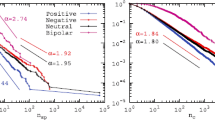Abstract
Understanding the communication behaviors of online community users, particularly their crowd intelligence dynamics, has long been a focal point within network communication research. In this study, we present an approach integrating the BERTopic topic model, advanced Natural Language Processing (NLP) techniques, and Social Network Analysis, to meticulously dissect the intricate dynamics of emotion propagation and evolution within collective behaviors that unfold on social networks. Our investigation delves deeply into this complex landscape, exploring the relationships between the sentiment of the initial post and subsequent responses, the interplay between sentiment strength and activity levels, and the correlation between sentiment polarity and the intensity of activity. This study highlights the significance of harnessing the combined power of BERTopic, NLP, and social network methodologies to decode the subtleties of emotional propagation and transformation.
Access this chapter
Tax calculation will be finalised at checkout
Purchases are for personal use only
Similar content being viewed by others
References
Del Vicario, M., Vivaldo, G., Bessi, A., Zollo, F., Scala, A., Caldarelli, G., Quattrociocchi, W.: Echo chambers: emotional contagion and group polarization on facebook. Sci. Rep. 6(1), 37825 (2016)
Devlin, J., Chang, M.W., Lee, K., Toutanova, K.: Bert: pre-training of deep bidirectional transformers for language understanding. arXiv preprint arXiv:1810.04805 (2018)
Doherty, R.W.: The emotional contagion scale: a measure of individual differences. J. Nonverbal Behav. 21, 131–154 (1997)
Liu, G., Wang, T., H.T.K.W.Y.: Enhanced contextual neural topic model for short text. Computer Engineering and Applications, pp. 1–14 (2023)
Gómez-Ortiz, O., Roldán, R., Ortega-Ruiz, R., García-López, L.J.: Social anxiety and psychosocial adjustment in adolescents: relation with peer victimization, self-esteem and emotion regulation. Child Indic. Res. 11, 1719–1736 (2018)
Gómez-Ortiz, O., Romera, E.M., Jiménez-Castillejo, R., Ortega-Ruiz, R., García-López, L.J.: Parenting practices and adolescent social anxiety: a direct or indirect relationship? Int. J. Clin. Health Psychol. 19(2), 124–133 (2019)
Grootendorst, M.: Bertopic: neural topic modeling with a class-based tf-idf procedure. arXiv preprint arXiv:2203.05794 (2022)
Guangyang: An empirical analysis of social media network emotional contagion and clue influence mechanism. J. Shenzhen Univ. Humanities Soc. Sci. Edition 37(6), 12 (2020)
Hofmann, S.G., Anu Asnaani, M., Hinton, D.E.: Cultural aspects in social anxiety and social anxiety disorder. Depress. Anxiety 27(12), 1117–1127 (2010)
Islam, M.R., Kabir, M.A., Ahmed, A., Kamal, A.R.M., Wang, H., Ulhaq, A.: Depression detection from social network data using machine learning techniques. Health Inform. Sci. Syst. 6, 1–12 (2018)
Jiang, S., Ngien, A.: The effects of instagram use, social comparison, and self-esteem on social anxiety: a survey study in Singapore. Soc. Media+ Soci. 6(2), 2056305120912488 (2020)
Kramer, A.D., Guillory, J.E., Hancock, J.T.: Experimental evidence of massive-scale emotional contagion through social networks. Proc. Natl. Acad. Sci. U.S.A. 111(24), 8788 (2014)
Melka, S.E., Lancaster, S.L., Adams, L.J., Howarth, E.A., Rodriguez, B.F.: Social anxiety across ethnicity: a confirmatory factor analysis of the fne and sad. J. Anxiety Disord. 24(7), 680–685 (2010)
Meng, L.M., Duan, S., Zhao, Y., Lü, K., Chen, S.: The impact of online celebrity in livestreaming e-commerce on purchase intention from the perspective of emotional contagion. J. Retail. Consum. Serv. 63, 102733 (2021)
Nor, N.M., Rahman, N.A., Yaakub, M.R., Zukarnain, Z.A.: Sentiment analysis on depression detection: a review. In: Science and Information Conference. pp. 718–726. Springer (2022)
Pengguan, Wang, F.: Research on the optimal topic number determination method of lda theme model in scientific and technological information analysis. Modern Library and Information Technology (9), 9 (2016)
Quinn, K.M., Monroe, B.L., Colaresi, M., Crespin, M.H., Radev, D.R.: How to analyze political attention with minimal assumptions and costs. Am. J. Political Sci. 54(1), 209–228 (2010)
Ruz, G.A., Henríquez, P.A., Mascareño, A.: Sentiment analysis of Twitter data during critical events through bayesian networks classifiers. Futur. Gener. Comput. Syst. 106, 92–104 (2020)
Schoenewolf, G.: Emotional contagion: Behavioral induction in individuals and groups. Modern Psychoanalysis (1990)
Tadesse, M.M., Lin, H., Xu, B., Yang, L.: Detection of depression-related posts in reddit social media forum. Ieee Access 7, 44883–44893 (2019)
Xiong, X., Li, Y., Qiao, S., Han, N., Wu, Y., Peng, J., Li, B.: An emotional contagion model for heterogeneous social media with multiple behaviors. Phys. A 490, 185–202 (2018)
Zhou, Y., Xu, R., Gui, L.: A sequence level latent topic modeling method for sentiment analysis via cnn based diversified restrict boltzmann machine. In: 2016 International Conference on Machine Learning and Cybernetics (ICMLC), vol. 1, pp. 356–361. IEEE (2016)
Author information
Authors and Affiliations
Corresponding author
Editor information
Editors and Affiliations
Rights and permissions
Copyright information
© 2024 The Author(s), under exclusive license to Springer Nature Singapore Pte Ltd.
About this paper
Cite this paper
Xie, T., Wu, X. (2024). Analyzing Collective Intelligence Through Sentiment Networks in Self-organized Douban Communities. In: Sun, Y., Lu, T., Wang, T., Fan, H., Liu, D., Du, B. (eds) Computer Supported Cooperative Work and Social Computing. ChineseCSCW 2023. Communications in Computer and Information Science, vol 2012. Springer, Singapore. https://doi.org/10.1007/978-981-99-9637-7_4
Download citation
DOI: https://doi.org/10.1007/978-981-99-9637-7_4
Published:
Publisher Name: Springer, Singapore
Print ISBN: 978-981-99-9636-0
Online ISBN: 978-981-99-9637-7
eBook Packages: Computer ScienceComputer Science (R0)





